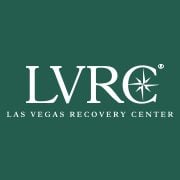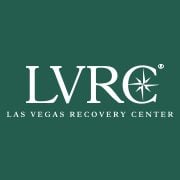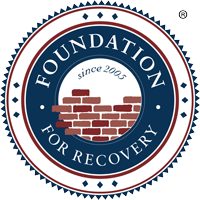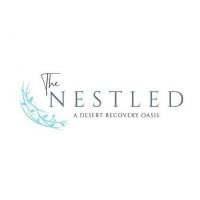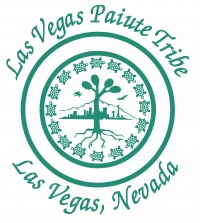About This Las Vegas, NV Facility
Las Vegas Recovery Center is an addiction treatment facility located in Las Vegas, Nevada. With a focus on helping individuals overcome alcoholism, dual diagnosis, opioid addiction, substance abuse, and drug addiction, it offers a range of services and treatment options. Their facility provides a supportive and therapeutic environment for those seeking to get sober and make positive changes in their lives.
Las Vegas Recovery Center offers various levels of care to cater to individual needs. They provide detoxification services to help individuals safely withdraw from addictive substances. Their inpatient program offers intensive and immersive treatment, allowing individuals to focus solely on their recovery. For those who require less intensive treatment, they provide outpatient and intensive outpatient programs. Additionally, they offer dual diagnosis treatment for individuals struggling with co-occurring mental health disorders alongside addiction. Through a combination of evidence-based therapies, counseling, education, and support, Las Vegas Recovery Center aims to empower individuals and help them achieve long-term sobriety and wellbeing.
Genders
Ages
Modality
Additional
Conditions and Issues Treated
Using both legal medications and illegal substances in order to maintain an addiction is substance abuse. Illegal substances can become addictive after a single use. If you are obtaining legal medications illegally, you may be suffering from substance abuse.
Fortunately facilities like Las Vegas Recovery Center in Las Vegas, NV are here to help.
Opioid addiction treatment facilities in Nevada, like Las Vegas Recovery Center cover both illegal and prescription opioids abuse. Most plans include detoxification and subsequent medications to ease the process. Behavioral therapies and counseling are also necessary to resolve the root cause of addiction.
A dual diagnosis is when someone deals with both alcohol and mental or emotional disorder. Emotional trauma, bipolar disorder, schizophrenia, depression can be part of dual diagnosis therapy. It must happen simultaneously to get care for these conditions to handle any of them effectively.
Levels of Care Offered
This center offers a variety of custom treatment tailored to individual recovery. Currently available are Aftercare Support, Detox, Drug Rehab, Dual-Diagnosis, Inpatient, Intensive Outpatient, Intervention, Outpatient, Partial-Hospitalization, Residential, with additional therapies available as listed below.
Detox is a drug rehab process that is designed to remove the drug addict from the drug safely. The problem with solely using detox as a sobriety tool is that it alone provides no therapy or counseling. If a person goes through detox and returns to their everyday life, they may begin using again once the detox has worn off.
Detox does not help with cravings, so for some addicts, this can be extremely difficult and should be both done and supervised by medical professionals. Aftercare is crucial, so selecting a facility that offers additional services is important.
Inpatient treatment takes place when a patient checks into a rehab facility. Patients at Las Vegas Recovery Center receive round the clock care that includes detoxing and therapy. Although outpatient treatments are available, inpatient care is recommended as the first step in rehabilitation. The intensive and comprehensive treatment sets patients on a path for drug free living.
An outpatient treatment program is set up to help with alcohol or drug addiction, or a co-occurring disorder. The patient must attend the Nevada facility for their therapy and other programs but are able to return home each night. The frequency of mandatory attendance decreases after much of Las Vegas Recovery Center‘s program is complete.
A partial hospitalization program is set up to cover those struggling with acute symptoms of addiction. This means that the individual is cared for in a hospital-like environment in Las Vegas, NV during the struggle of those symptoms, but allowed to go home at night. Most PHPs require approximately six-hours of therapy, at least three days per week.
Residential treatment programs are those that offer housing and meals in addition to substance abuse treatment. Rehab facilities that offer residential treatment allow patients to focus solely on recovery, in an environment totally separate from their lives. Some rehab centers specialize in short-term residential treatment (a few days to a week or two), while others solely provide treatment on a long-term basis (several weeks to months). Some offer both, and tailor treatment to the patient’s individual requirements.
Not everyone who struggles with addiction in Nevada is ready to go into a treatment program. For these individuals, intervention services may help. Friends and family of the individual can call and set up an intervention. We have a professional come and lead the discussion.
Treatment is just the first step to maintaining sobriety. After treatment, aftercare support at Las Vegas Recovery Center helps the individual adjust to a life without substances. This support may involve a sober living home in or near Las Vegas, NV, career counseling, or educational assistance. This is when a relapse prevention plan begins to take shape.
Las Vegas Recovery Center‘s Therapies & Programs
When family members are more proactive and involved in the treatment procedure, it encourages the patient to advance his or her progress. Moreover, it shouldn’t be ignored that genetics play a role when it comes to addiction, so it’s better to approach the problem as a unit. Also, with proper education, family members can help an individual avoid addiction triggers and guide him or her in making lifestyle changes necessary for his or her sobriety.
It has been said that unhealed trauma is the root of most addictions. Trauma therapy is a way of addressing trauma while in a safe situation in order to heal. Healing past traumas and introducing coping strategies are strong foundations for sustained recovery from addiction. This may involve individual or group counseling or both, in a Las Vegas, NV facility. Other forms of therapy have been proven to assist in healing past traumas.
Dialectical Behavior Therapy (DBT) helps those who attend Las Vegas Recovery Center understand how their feelings, beliefs, and thoughts affect their behaviors. DBT is particularly useful for people with self-harming behaviors, as well as those with substance abuse disorders. DBT teaches people how to tolerate distress, regulate their emotions, and how to become mindful.
Cognitive Behavioral Therapy (CBT) is a type of psychotherapy that focuses on the underlying thoughts and behaviors that caused the problem of addiction in the first place and may cause a relapse. Negative feelings are common in substance abuse disorders, and if not recognized, they can cause co-occurring disorders.
CBT involves strategies that help to change the thinking and behavioral pattern by cognitive restructuring. In simple terms, it helps to remove negative thoughts and provides long-term benefits. Also, CBT promotes self-awareness, self-control, and healthy ways to respond to negative thoughts. It can be administered as a mono-therapy as well as a part of combination therapy.
Eye Movement Desensitization and Reprocessing (EMDR) is a therapeutic method used to treat emotional trauma. In an EMDR session, a Las Vegas Recovery Center therapist provides a stimulus for the client, such as hand-tapping or moving a visual stimulus that the client tracks while recounting a traumatizing event. EMDR is notably effective in treating PTSD.
The 12-step program is a part of substance abuse treatment. In this program, peers help each other to achieve the goal of abstinence. It was initially developed by the founders of Alcoholics Anonymous. Due to its huge success, the 12-step program is included as a part of other substance abuse treatments.
The 12 steps guide at an individual level. It begins with the individuals accepting that they are addicts, and they understand its consequences. It is followed by focusing on the recovery process and making amends for hurting others. The program provides the benefit of cognitive restructuring, which refers to the process of change in the negative thoughts that leads to long-term benefits.
Payment Options Accepted
For specific insurance or payment methods please contact us.
Is your insurance accepted?
Ask an expert, call (888) 674-0062
Additional Details
Specifics, location, and helpful extra information.
Las Vegas, Nevada 89129 Phone Number(888) 997-4695 Meta DetailsUpdated November 25, 2023
Staff Verified
Patient Reviews
There are no reviews yet. Be the first one to write one.
Las Vegas, Nevada Addiction Information
The state of Nevada has been plagued by drug and alcohol abuse for years. In 2015, Nevada ranked 4th in the nation for drug overdoses. More than 600 people died due to drug abuse that year and almost 70% of those overdoses were opioid-related. The state legalized medical marijuana in 2001 and recreational marijuana was also legalized in 2017.
Las Vegas, Nevada is a city that is known for its high rates of alcohol and drug addiction and abuse. About 22.5% of people in Las Vegas, NV abuse drugs. In 2017, there were 814 drug-related arrests in Las Vegas. If you are struggling with addiction, it is important to get help from a reputable treatment facility. Each treatment facility in Las Vegas offers its unique approach to recovery.
Treatment in Nearby Cities
- Lovelock, NV (324.7 mi.)
- Reno, NV (337.8 mi.)
- Yerington, NV (286.8 mi.)
- Laughlin, NV (82.5 mi.)
- Henderson, NV (20.0 mi.)
Centers near Las Vegas Recovery Center
The facility name, logo and brand are the property and registered trademarks of Las Vegas Recovery Center, and are being used for identification and informational purposes only. Use of these names, logos and brands shall not imply endorsement. RehabNow.org is not affiliated with or sponsored by Las Vegas Recovery Center.
